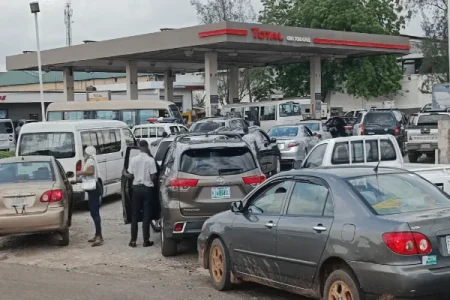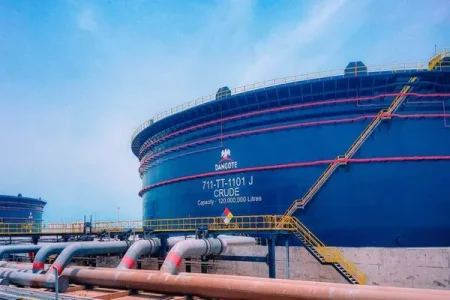
Nigeria faces severe fuel shortages as petrol landing costs hit N978/liter. The government denies subsidy reinstatement despite projected allocations. Long queues and black market sales plague consumers. Experts call for collaboration between stakeholders to address the crisis. The situation highlights ongoing challenges in Nigeria's energy sector reform.
Nigeria's ongoing fuel crisis has intensified as the landing cost of petrol reaches an unprecedented N978 per liter. This surge, driven by the country's foreign exchange challenges, has left many Nigerians struggling to cope with the economic fallout.
The Nigerian National Petroleum Company Limited (NNPC) attributes the recent fuel scarcity to logistical issues and adverse weather conditions. However, industry experts suggest that the root cause lies in the complex interplay of global oil prices, currency devaluation, and partial subsidy removal.
President Bola Tinubu's administration, which initially declared an end to fuel subsidies, now faces a difficult balancing act. While the government denies reinstating subsidies, reports indicate that billions of naira may be allocated for fuel subsidies in 2024.
The impact on everyday life is stark. Long queues at petrol stations have become commonplace, with some motorists waiting hours to refuel. Black market prices have skyrocketed, reaching up to N1,100 per liter in some areas.
Petroleum marketers assure the public that efforts are underway to resolve the supply issues. However, they caution that areas far from major depots may experience prolonged shortages. Experts call for a more collaborative approach between the government, NNPC, and downstream operators to find lasting solutions. Suggestions include establishing a council of industry stakeholders to anticipate and address potential challenges.
As Nigeria grapples with this crisis, the debate over fuel subsidies and energy sector reform continues. The government faces the challenge of balancing economic realities with the social impact of rising fuel costs, all while navigating a volatile global oil market.



![[FULL LIST] Tinubu Appoints IBB's Son, Others to Lead Key Agencies](/data/attachments/219/219051-c45e0723af5235b4e99b88eb1fa579fd.jpg?hash=su4VHIBpS9)
